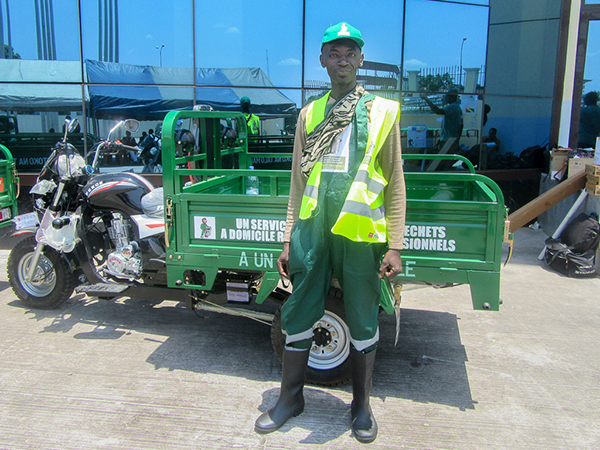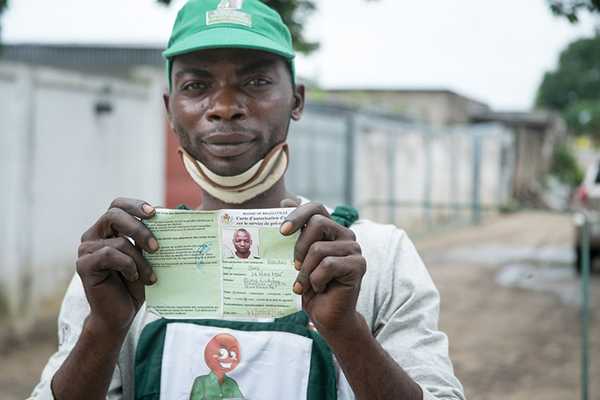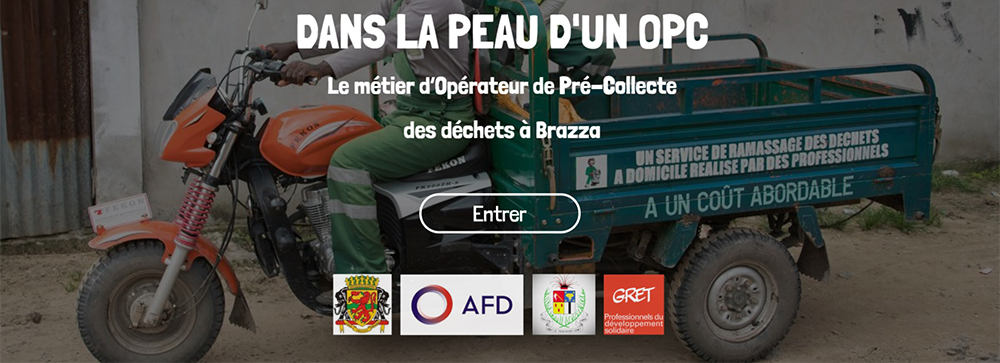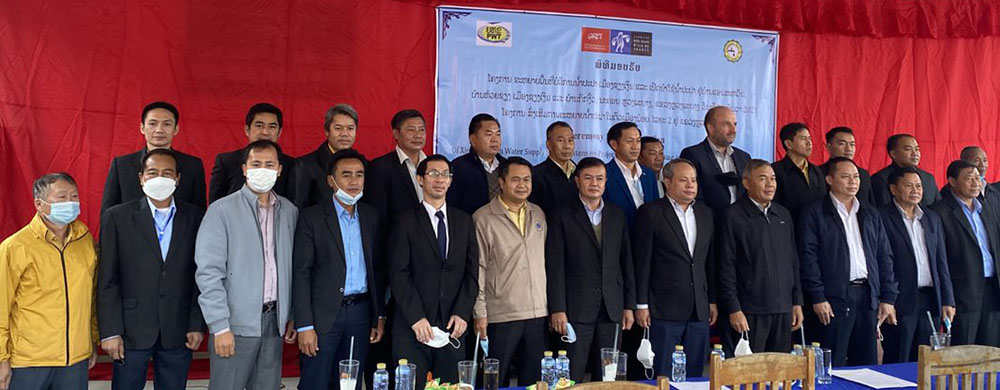While waste management and treatment is a major issue in terms of health and ecology, its implementation is often deficient in large African cities. Following a project conducted in Congo from 2014 to 2019, GRET is now launching a web documentary retracing support provided to informal waste collection stakeholders to institutionalise their activity and make it autonomous. With this video, step into the shoes of a pre-collection operator and discover his daily work, from his home to the streets of Brazzaville.
From 2014 to 2019, as part of the project to support waste pre-collection value chains in Brazzaville (Filipa)*, GRET supported almost 300 pre-collection operators (PCOs) to obtain official recognition from the local authorities. In Brazzaville, as in the majority of large African cities, waste pre-collection is carried out by informal pre-collection operators who are not recognised by the local authorities, who work in very precarious conditions (lack of material, of protective equipment, of social security coverage, etc.) and are poorly organised as a group. They are usually highly marginalised and rejected and mistrusted by the population. Nevertheless, they provide a vital service vital to almost a quarter of the inhabitants of Brazzaville, in particular to populations living in remote neighbourhoods with no access to the voluntary waste disposal skips placed along hard-surfaced roads by the waste collection company.

Institutional recognition and structuring of a professional branch
The Filipa project enabled the implementation of a system for issuing of authorisations to conduct waste pre-collection by district mayors, allowing pre-collection operators to make themselves known and be recognised in neighbourhoods and vis-à-vis the municipality, the police and inhabitants. It also led to strengthening of operators’ capacities through training (on health risks, marketing, management of savings, etc.) and support/coaching for their daily activities. The implementation of an equipment fund, made up of several sets of motorbike-skips, carts, workwear and support for vaccination, and the donation of over 250 sets of personal protective equipment made it possible to improve operators’ working and living conditions.
In parallel, the regulation of their activity enabled them to become organised through the creation of an association bringing together 120 members to date: Lipob, or Lisanga Pona Bopeto Ya Brazzaville. For Rock Koubemba, the chairperson of the association, this structuring makes it possible to “defend pre-collection operators’ interests better vis-à-vis the city authorities, support PCOs with procedures for obtaining authorisations and with the organisation of marketing campaigns on the service in neighbourhoods to increase the number of clients”. In this regard, the pre-collection operators are at the heart of the debate and decision-making concerning their job, which strengthens their recognition by local authorities.

An inside view with the PCOs
In order to valorise the pre-collection operator job and strengthen its recognition by external stakeholders, a web documentary retracing the background of the project and the PCOs’ daily work was produced.
Entitled Dans la peau d’un OPC (In the shoes of a PCO), this web documentary – funded by GRET via its research funds – consists of several parts presenting the pre-collection operator job in Brazzaville through videos of operators’ daily work, from the moment they leave their homes to their circulation in the city, their requests for authorisation, deposit of waste, management of subscribers and training activities. This resource also retraces the background of the Filipa project, its major stages and the methodology used, including several documents produced as part of the project: a booklet on informal stakeholders, procedures guide, etc.
Lastly, a map of Brazzaville provides an overview of key places in the city and of the places the videos were shot in, while a photo gallery presents pre-collection operators in their daily activities.
Enjoy watching Dans la peau d’un OPC à Brazza!
* The Filipa project was conducted jointly with the Ministry of Territorial Development and Delegation of Major Works and the Municipality of Brazzaville, thanks to funding from Agence française de développement (AFD).




